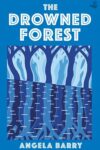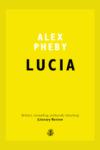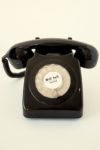 People like to wonder about what literature is good for. This is a stupid, easy question. It’s more relaxing than Twitter. It makes you better at words, which makes you better at remembering things, and also better at e-mail. It also might just be a privately enchanting thing you can do without hurting people. But I suspect that people who ask this question are looking for more serious answers, which is to say, more complex and less easily defensible answers.
People like to wonder about what literature is good for. This is a stupid, easy question. It’s more relaxing than Twitter. It makes you better at words, which makes you better at remembering things, and also better at e-mail. It also might just be a privately enchanting thing you can do without hurting people. But I suspect that people who ask this question are looking for more serious answers, which is to say, more complex and less easily defensible answers.
One serious answer is that literature can make you a better person. If we accept this, accept the possibility that literature improves our souls—if that is, maybe, how we distinguish good literature—then my personal nomination for the greatest work of literature of the 20th century is Allen Carr’s The EasyWay to Stop Smoking, followed immediately thereafter by James Joyce’s Ulysses. I believe that these books offer a certain reader the chance to become a significantly more compassionate person. That’s because I think the root of compassion is realizing that however smart you think you are, you might be less smart than that.
Placing Ulysses in the same sentence as EasyWay might seem flippant, because Ulysses is a Great Book—not just an excellent book, which it is—but a Great Book, a culturally sanctioned fetish object. What makes a Great Book, as far as I can tell, is a promise of secret knowledge—a kind of cultural sanction and length that suggests there must be something in a certain big slab of pulp. Many men I know (I gender this 100% on purpose) have been tempted to go away into some cave somewhere to find some body of insight that they think might fundamentally organize the world. Some essence—some way to be smarter than the benighted peasants around you. (I take it for granted there is no such thing.) It’s the urge to be the biggest guy in the gym, but for men who are too embarrassed to wear shiny gym shorts among other men.
It’s funny that Ulysses is regarded in this way, because I think the fundamental lesson of Ulysses is that you’re kind of a dumbass—or, more specifically, that you are imperceptive. James Joyce just straight-up sees more of reality than you do. That’s all the book is, really. It’s things you see all the time, seen more thoroughly. Ulysses, like Seinfeld, is a show about nothing. Two dudes, in this vaunted classic, get wasted. They buy soap. One of them, Leopold Bloom, nice guy and pervy cuckold, jerks off on the beach. The other one, Stephen Daedalus, a pretentious young intellect, walks along a different beach, imagining all sorts of crazy bullshit. They bump into each other, after talking to some other people. They pee. Finally, the perspective shifts to Molly, the perv’s wife, who dreams eloquently of rimjobs.
So the lives of your characters are much like yours, especially if you’re interested in butt stuff. But you don’t pee, I’m assuming, under “a heaventree of stars hung with humid nightblue fruit.” You think of how you maybe should be nicer to your mom, but not how “She had loved this weak watery blood draining from her own.” You wouldn’t describe a bird of paradise as a “little mite of a thing with a heart the size of a fullstop.” That one sticks in my head particularly—it amazes me how Joyce figured out how to quite simply end a sentence with the diagram of a bird’s bleeding insides.
You can’t help reading Ulysses and feeling somehow inept—as a writer especially, also as a reader, but also as a human. There are so many details of your life—so many years-long interior arguments, brief infatuations, and dull aches—that are immediately lost, incorrectly recorded, or unmemorable. Ulysses is what your life would look like with perfect self-recall: expansive, filthy, and requiring annotations to be at all comprehensible to others. Your life, as it turns out, is lost on you, at least relative to the way that Joyce might see it—he could find more inside your imagination, it seems, than you ever imagine there might be.
The point I’m trying to make isn’t that you should be more like Joyce. Joyce took eight years to write Ulysses, eight years to write a book about a single fucking day. You probably shouldn’t do that. The point I’m trying to make is how Ulysses is, among a lot of other things, an illustration of the brute fact that your life is the one you know best but then not very well at all.
*
The EasyWay to Stop Smoking is a great exercise in exactly the same idea. It’s a genius book, at least as smart as Ulysses. It’s not a virtuoso performance of language surgery, but it makes you stop smoking. It has saved millions of people from fatal smoking-related illnesses that they were too dumb to avoid. It took me a long time to read it because I thought self-help books seemed condescending. For the individualistic person, it’s embarrassing to accept that your expertise in yourself is not absolute. I read it hesitantly, out of desperation; I was desperate because I was quitting smoking very frequently. I was quitting once a week, then twice a week, then daily.
How it makes you stop smoking is essentially through brainwashing. I can tell you its basic points about nicotine, but that’s no substitute for reading the book, any more than my telling you that your anxiety is illogical would be a substitute for therapy. Your anxiety is illogical. Do you feel better? The fun part of smoking is that knowledge of how bad smoking is helps you not at all. Here in Canada, cigarette boxes are illustrated with photographs of cancer-soaked lungs, or infected tongues that look like badly frosted cakes. These graphics are intended to make smoking less appealing but they don’t—you just buy cigarettes every day and think, “well, now it’s time to make my teeth fall out.” You get stressed out thinking about how smoking is hurting you so you smoke more.
What the book brainwashes you into is thinking that quitting smoking isn’t that difficult. Because it isn’t. If you’re a smoker, you sleep through nicotine withdrawal every night. Quitting smoking feels a little weird for three days, then very slightly weird for two weeks. Women give birth. People go to the moon, then readjust to normal corn flakes life. That’s difficult. Smoking is easy. Not smoking is easy. You just don’t know that, until you read the book. I can tell you this, but you won’t believe me, unless you read the book. This is because, if you smoke, the book is smarter than you are.
*
Fundamentally, I’m skeptical of the idea that reading stories improves your ability to understand people because obviously people are not good stories. Lorrie Moore, for example, is an excellent writer because she skips straight to the point—she catches her characters as they cross the moments she can most precisely incise. Obviously, people do not skip to the point, especially people you struggle to be nice to. Foolishly, having been depressed a bunch, I feel at liberty to say that depressed people are often annoying. The funniest things people say about their lives are often the least important. My friend Liz can’t play the harp right now because a drag queen fell on her thumb. But the actual consequences of her injury are less theatrical in tone.
Moreover, casual examination of readers of literature will reveal assholes. If you go to school for literature, you end up meeting a lot of snobs and debate club jerkoffs. There are a lot of academics who can’t talk to anyone who hasn’t taken Intro to Modernism. So surely, there is no guarantee of literature helping you to relate to others. In fact, I think it can often have the opposite effect, because it can trick you into thinking you’re an expert in human nature. Casual cruelty often comes from assuming you know other people very well who you haven’t bothered to examine.
Literature, though, can also lead you back to an intuitive understanding that there are worlds inside–weird Marianas Trenches where the giant squids of other people live. This might sound like it’s leading to that dumb Socrates advice: “Be kind, for everyone you meet is fighting a hard battle.” But it’s patronizing to assume that everyone is fighting a hard battle. Malaise can be generated by a deficit of B12, or not affording a luxury handbag. You don’t have to get all sappy in a David Foster Wallace commencement speech way to recognize your own ignorance. The stories you tell yourself about other people might be mistaken in a benign way, or even a forgiving way; you might see a simple sociopath as understandably wounded, for example.
I also don’t mean to say that you can’t ever know somebody for real. Obviously you can, to the extent that people are knowable. To think otherwise is pure romance; it’s thinking that life is like a Raymond Chandler novel, where everyone is always suddenly brandishing a gun. I also don’t mean that you can’t know something about anybody they don’t yet know about themselves; if that were true I wouldn’t need my psychiatrist. All I’m saying is that I firmly believe that the more you feel like a bit of an idiot, the more human data you can actually absorb, because you’re not constantly grafting all the sighs of strangers onto your grand theory about the human condition. We all know people who try to burst into our lives, like the Kool-Aid Man, to tell us all about what our real problems are. It’s easier to be pleasant to people you aren’t regarding as specimens, to whom you can eventually bequeath your advice or wisdom about their struggles.
Seemingly science contradicts my suspicions, because there’s this study in Science Magazine which shows that people who read literary fiction are better at picking up on emotional cues. Apparently, skill in absorbing words like “effulgent” translates, somehow, to skill in identifying effulgence playing across a stranger’s features. The researchers believe that because it’s hard to figure out what people are doing in literary fiction, you end up exercising the general people perception areas of the brain. I don’t find that hard to believe. Our brains are a mess with everything prodding every other thing.
But ultimately, I don’t accept that as evidence of literature’s ability to help you connect. Getting slightly better at reading someone’s emotions doesn’t seem sufficient, unless your definition of human connection is expansive enough to include a torturer taking pleasure in his victim’s badly-concealed agony. Detecting emotional states is great for therapists, but also for con men. Surely seeing sadness in someone’s eyes doesn’t hurt your chances of understanding them, but you can also use that perception sloppily; you could just assume in a half-assed paternal way that their sadness stems from a spiritual lack created by their sinful pursuit of butt stuff.
Which brings us back to Ulysses. Ulysses is full of beautiful moments of misunderstanding. At one point, Leopold Bloom (protagonist B) receives a dirty letter from a pen pal containing the line “I called you naughty boy because I do not like that other world.” The word “world”, in that sentence, is a typo—but the typo contaminates Leopold’s imagination; his interior monologue later dwells on the phrase “I do not like that other world”—a mistake becomes a meditation. Later, one encounter with a blue cheese sandwich propels our hero through torrents of hypothesis about whether it might one day be trendy to eat your own hair: “Cheapest lunch in town. Of course aristocrats, then the others copy to be in the fashion.” Reading Ulysses, it struck me that what I took for my intellect was often a mash of bizarre half-truths superimposed on momentary digestive reactions.
The fact that it took Ulysses to do that is a matter of biography. I think Ulysses really was a necessary book for me, but only because I was a particular species of very young white male narcissist. You might love Ulysses, but there are long odds that you, dear reader, require it in the same way. It spoke to me in my language and transcended it. It’s easier to recommend The EasyWay to Stop Smoking, given its broader appeal. Those are my two favorite books; may you never need to read them.
Sasha Chapin is a songwriter living in Toronto. Follow him @sashachapin.
This post may contain affiliate links.







